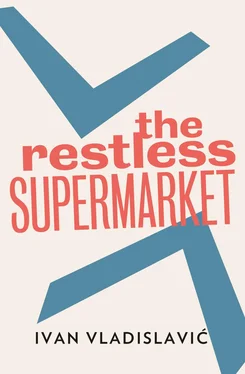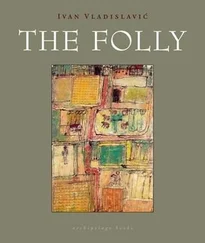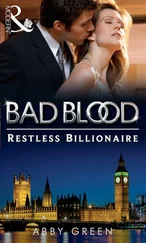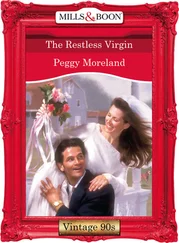‘I’m not cut out for living in a granny flat,’ he said, and they both laughed. ‘But tell me, who’s that?’
For a moment I thought he was referring to me — I had just risen to leave — but he meant Mevrouw Bonsma. She was playing ‘Never on Sunday’, which served me rather well as an exit march.
When I returned to the Café a few days later, and then at regular intervals thereafter, I found him sitting at the same table, under the light, ‘ensconced’ as I thought of it. A creature of habit. Good for him. (How wrong one can be about people.) Habit maketh the manners and all the rest that maketh the man. Predictable behaviour is what makes people tolerable, and obviates a risky reliance on goodwill and other misnomers. Every day he turned to the crossword, painstakingly removed the straight clues, and went on with the puzzle. So I had the opportunity to measure his skill against my own after all. I discovered that he was a very good crossword solver indeed. Almost superhuman. He usually finished the puzzle in under fifteen minutes! At least, I assumed that he finished it, although I could not tell at that distance.
Proofreaders (one may retire from the post but not the profession) generally have suspicious minds and long memories. The Reader’s Digest, to which I subscribed in the days when my word power still needed improving, once published an anecdote (if you’ll pardon the contradiction in terms, etymologically speaking) in the ‘Life’s Like That’ feature, about a commuter, a mediocre crossword puzzler, who watched enviously every evening for many months as a fellow-traveller completed the cryptic puzzle in ten minutes flat. Until one day the master left his paper behind him in the train compartment when he disembarked, and the other, taking it up to marvel, discovered that the grid was filled with nonsense that bore no relation to the clues. Looking at the slim gold strap of Spilkin’s watch and the chubby fingers of his hands (surgeons and cardsharps have long thin fingers only in films), I became convinced that he was up to the same trick. One afternoon, when he left the paper unattended for a moment to visit the Gentlemen’s room, I actually rose and approached his table, meaning to snatch a glance at the puzzle, but he reappeared in a trice and nearly caught me red-handed. I avoided an embarrassing situation only by stooping to tie a shoelace. It was time to put a stop to this ridiculous behaviour.
It so happened that my letter on the new crossword format had been published that day and I now saw that it would provide the perfect excuse for making his acquaintance — and a rather impressive introduction, too.
Once he had returned to his puzzle, I opened my newspaper to the letters page and prepared to accost him. But my opening gambit — ‘Your troubles are over, Mr …?’ — died on my lips. My impending approach had transmitted itself to him as a receptivity to communication, for as I opened my mouth he cocked his head, rested the end of the fountain pen against his greying temple, and asked:
‘Clam for a solitary sailor?’
For a moment I was utterly nonplussed. The idiom, the rakish air, the slightly nautical plimsolls he was sporting that day, the voice which was rummier than the one he used with Eveready and Mrs Mavrokordatos, all of this took me aback. Was he making an indecent proposal? It was unthinkable. While I blanched, he snapped his fingers — an accomplishment I have never been able to master, even with the application of lubricating spittle to the relevant forefinger and opposable thumb — and exclaimed:
‘Abalone!’
Click. I clattered through my newspaper and scanned the clues. There it was: fifteen down.
‘Three across: Mabel out for a stroll? Five-letter word,’ I countered. And before he had time to reply, supplied the answer myself: ‘Amble.’
And so, swapping clues and offering tips, we began to hold a conversation.
He said he was a Spilkin. I knew the name: a dozen or so in the Johannesburg directory, with concentrations in Melrose and Cyrildene. Spilkin. It suited him, this combination of soft and sharp, lip and bodkin, wet flesh and dry glass. He said he was a retired optician.
‘By a stroke of luck,’ I said, ‘you have met the only person in the Café Europa who knows the difference between an optician and an optometrist.’
‘And an ophthalmologist?’
Easy as pie, I said. I could even spell it. Apophthegm and phthisical too, which were in the same orthographical league. I was a retired proofreader, I said, by way of explanation, and my name was Tearle. (Just the surname, to match his ‘Spilkin’. To tell the truth, deep down where the roots of language coil about the bones, I have never really felt like an Aubrey. Meaning a ruler of elves. Never had the slightest ambition in that direction. As for Aub, the inevitable diminutive — it’s nearly as bad as Sphere.)
‘How do you spell it?’ he asked.
Well really. ‘O-P-H-’
‘I mean Tearle.’
‘Oh. With two e’s.’
‘Spilkin has two i’s. Which was a distinct advantage in my chosen profession. I trust that having two e’s didn’t harm yours?’
‘Not at all.’
The details of that first conversation escape me now (this reconstructed sample is more or less representative), but we spoke, naturally enough, about optometry and proofreading, and the link between them: the eye. We discovered that we had much in common. I described, in lyrical fashion, the passage of the eye along a line of print; and he explained, with technical precision, the neurological fireworks and muscular gymnastics that made that movement possible. He admired my spectacles — horn-rims thirty years old and not to be bought for love or money — and gave a remarkably accurate account of my astigmatism and my lazy left by glancing through the lenses. This introduced a note of friendly competition. I recited seven verses of lemmata from the M section of the Concise Oxford Dictionary (my beloved fourth edition of 1951, reprinted with revised Addenda in 1956, boon companion of my heyday, well fingered and thumbed): Mauser ~ mazard ~ mazarine ~ measles … measly ~ medal ~ medallion ~ medium … medlar ~ melancholy ~ mélange ~ memento … memoir ~ menses ~ Menshevik ~ mercury … mercy ~ mesdames ~ meseems ~ metal … metallic ~ meteoric ~ meteorite ~ metropolitan… — metry ~ microscope ~ microscopic ~ mighty … He chimed in with the standard eye chart (the one devised by Professor Snellen) and an undergraduate mnemonic for recalling it: Eggheads from Paris, the omelet zone, and so on. If only I’d had that by heart when I went before the Medical Board! I wrote it down in my notebook. Then we produced a facsimile chart on the back of an advertising flyer from the newspaper and made several suggestions for improving it. I felt, for instance, that an ‘s’ might be more useful on line 2 than an ‘o’, so that the mnemonic might read ‘ Elephants find Pretoria the superior zoo’. We became quite light-hearted and boisterous. He secured the chart to a screw on the sconce to test my eyes and I passed with flying colours, having memorized the mnemonic while I transcribed it. ‘Thanks to you,’ I said, ‘I will never fail an eye test again.’
‘You could always ask them to turn it upside down.’
And that reminded me of the crossword. I showed him my letter and he was delighted with it.
A few days later, the Star published a brace of readers’ letters supporting my views about the new format, from J. Serebro of Wendywood and ‘Also Miffed’ of Germiston. The puzzles editor surrendered, the old format was restored. Tearle and Tradition had prevailed.
Читать дальше












